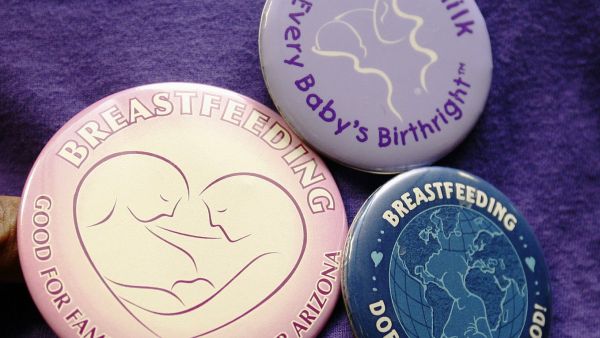In the past few decades, public opinion in many countries has swung heavily in favor of the “breast is best” approach – new mothers are encouraged, and perhaps pressured, to breast- rather than bottle-feed their infants.
This has led to rising breast-feeding rates, but not in Lebanon. Here, breast-feeding rates have been statistically low for the past 20 years. The latest available data reports that some 25 percent of infants born in the country are exclusively breast-fed for the first six months of life – a statistic that experts put among the region’s lowest.
Data suggests that breast-feeding reduces infant mortality in developing countries and also reduces the risk of childhood diseases. It is also purported to be beneficial to mothers. So why is Lebanon bucking the breast-feeding trend?
Experts blame low numbers on variety of factors. Dr. Mona Nabulsi, the head of the pediatrics division at the American University of Beirut’s Medical Center, is the author of a recent study that looked to mothers to explain the low rates.
Previous statistical studies, while consistently citing low numbers in the country, have chalked the difference up to low socioeconomic status or lack of education. But Nabulsi’s research found that lack of preparation was a major issue.
“Looking at moms who really succeeded [at breast-feeding] in the study, they were really prepared to face everything,” she explains. “They knew ahead of time what was waiting for them and they were committed to do it.”
Sleepless nights and sore nipples are among the challenges moms may face. Women in Nabulsi’s study also reported fears of sagging breasts, or of having harmful or insufficient milk.
Rana Murr, a 32-year-old mother of three, says she researched feeding methods during her first pregnancy but was still unprepared for how exhausting breast-feeding would be. “It takes 45 minutes for the baby to eat each time, and it happens every three or four hours. So then you have an hour, just sitting and breast-feeding. It’s tiring,” she says, “but at the same time it’s a nice feeling.”
Murr says she breast-fed her younger two kids, who are now 3 and 2, for around three months each. She stopped at three months because she felt she wasn’t producing enough milk. She breast-fed her eldest child, now 6 years old, for “a short time” because she had to return to work and had a medical condition.
After Murr delivered, she was separated from her newborns. Her children’s first tastes were of formula, and later hospital staff brought them to her and she began to breast-feed.
Although Murr says the doctors and nurses at the hospital where she gave birth encouraged her to breast-feed and taught her how, this is not always the case. Most hospitals in Lebanon are not “baby friendly,” an international label whose criteria is set by the World Health Organization.
Nabulsi describes baby friendly hospitals as those where “baby and mother are kept together right from the time of birth to the time of discharge.” In these hospitals, she adds, staff “put the baby directly on the breast of the mother if the condition of the mother and baby allows.”
According to Dr. Ali al-Zein, president of the Lebanese Association for Early Child Development, 10 years ago there were 22 baby friendly hospitals in the country, accommodating some 20 percent of births. Now, he reports that there is “maybe one.”
There are also few specialized lactation nurses in the country, a lack that Nabulsi laments. “If you want breast-feeding to improve, you’d like to have all the nurses who work in nursery units be very well trained and advising mothers because they are available to mothers all the time. A doctor will show up in the morning or in the afternoon, but is not with the mother 24 hours [a day] to help with issues that may come up at any time.”
LAECD has a 24-hour hotline staffed by a lactation specialist to advise mothers, but Nabulsi said the number isn’t posted in the maternity ward at AUBMC.
Zein says another problem is the power of infant formula companies. There are 77 brands in Lebanon, a number he calls “too many for a small country.” He argues that the companies and hospitals act in defiance of a law that limits formula distribution in hospitals, leading doctors to distribute formula rather than support breast-feeding.
And then there is Lebanon’s maternity leave law. It mandates 49 working days, a short time that regionally bests only the UAE’s 45 days and the world’s low, Tunisia’s 30 days. For working mothers who want to breast-feed, this law doesn’t offer much support.
One of Murr’s friends kept an infant at her breast for 11 months, but she is a stay-at-home mom. But when Murr gave birth to her first child, she was working. “I had to go back to work only 49 days after giving birth,” she says. So she weaned her daughter early to have her “get used to the bottle.”
By Annie Slemrod








